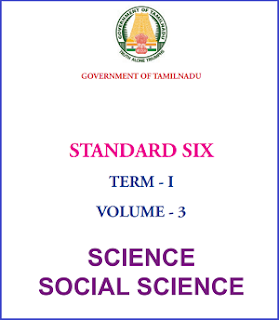Matter:Matter is defined as anything that has mass and takes up space.
States Of Matter:
Matter can be seen as solids,liquids and gases on the basis of two important factors. They are -
a. The way the particles are arranged
b. The way the particles attract each other.
Atoms:
- Atoms are the smallest particle of matter.
- All matter is made of atoms.
- To identify structure of atoms one may use Scanning Electron Microscope (SEM),Tunnelling Electron Microscope (TEM) and Scanning Tunneling Microscopy (STM).
- Particles of matter have a lot of space in between them.
- In different forms of matter this spacing will be different.
- Particles of matter attract each other.
- It is this attraction which keeps the particles together.
- This attractive force will be different for different forms of matter.
Solid:
- In solid, the particles are tightly packed with very little space between them. Eg. stone
- Definite shape and volume
- Incompressible
- These particles attract the each other very strongly
- Particles of solid cannot move freely.
- Particles in liquids are arranged in a random or irregular way and the space between the particles is greater than that in solids. Eg. water
- No definite shape, liquids attain the shape of the vessel in which they are kept.
- Liquid atoms are packed more loosely which allows things to be able to pass through it
- Liquid is effected by gravity more than anything
- Liquids are always moving due to gravity around it
- Compressible to a small extent.
- The force of attraction between liquid particles is less than solid particles.
- These particles move freely.
- The particles in the gases are arranged far apart. They move freely. Eg. Air
- A gas atoms are spread out so far, you can walk through it without any restriction
- Gas is not affected by gravity
- The gas's atoms never stop moving and it never stays in place
- Gases have neither a definite shape nor a definite volume.
- Highly compressible
- The force of attraction is least between gaseous particles.
- Gaseous particles are in a continuous, random motion.
Liquefaction of gases: It is the process by which substances in their gaseous state are converted to the liquid state. When pressure on a gas in increased, its molecules comes closer together, and its temperature is reduced, which removes enough energy to make it change from the gaseous to the liquid state.
Classification of Matter:
Pure Substance:A pure substance is made up of only one kind of particles.Pure substances may be elements or compounds.
1. Element: An element is made up of same kind of atoms.
2. Compound: Compound in the substance formed by the chemical combination of two or more element
Mixture :A Mixture is an impure substance and contains more than one kind of particles.In the mixture the components are mixed in any proportion.
1. Homogenous mixture: When a mixture has the same proportions of its components
2. Heterogeneous mixture: When a mixture hasnot the same proportions of its components
Separation:The process by which the components of mixture are isolated and removed from each other to get pure substance is called separation.
When and why do we need to separate mixtures?
Separation of mixtures is done
1) to remove harmful components.For example: stones from rice
2) to obtain the useful component.For example: petrol from petroleum
3) to obtain a substance in a highly pure form.For example: gold from gold mines
Separation method: Separation method to be adopted depends on the properties of the components.
1. Handpicking – For smaller quantities containing particles reasonably large in size to be recognised can be picked by hand
2. Sieving - separate solid particles of different sizes.
3. Winnowing – Adopted to separate lighter solids from heavier ones
4. Churning - When very fine insoluble solids have to be separated from a liquid as in butter from curds
5. Magnetic separation – Used to separate magnetic substance from non-magnetic substance
6. Sedimentation – Settling down of suspended, insoluble and heavy solid particles (used to separate solid – liquid mixtures)
7. Decantation- Process of pouring out the clear supernatant liquid without disturbing the sediment
8. Filtration – Process of separating insoluble solid particles (residue) from a liquid (filtrate) by using a filter paper. Like tea leaves from tea.
9. Threshing - separate grains from their stalks by beating them so hard that the grains are separated from their stalks.
Adulteration – make impure by the addition of a foreign or inferior substance.





No comments:
Post a Comment